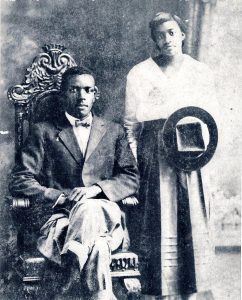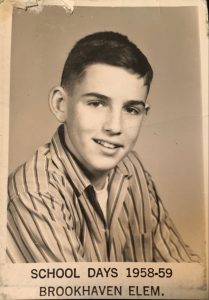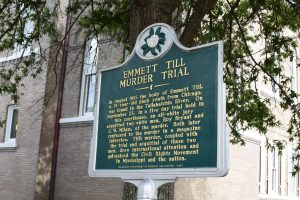By A Tyke Dahnsarf
To read Part 2 of this blog series, please go
HERE
"Ah woe, fare ya well, never see ya no mo'
Why don't ya hear me cryin'
Ah woe, smokestack lightnin'
Shinin', just like gold."
- Chester "Howlin' Wolf" Burnett, 1956

It's ironic that many Palladian plantation palaces of the South emulate an Athenian ideal. The much vaunted democratic seedbed, ancient Athens, was a democracy for the few, sustained by the enslaved. It was a society that was doomed by design, for it was built on fear - both oppressed and oppressor lived in dread. Just as Doric columns of alabaster could not prevent Athens' collapse, those fashioned from mere Cottonwood contained the very spores that ensured eventual rot from within. Even as this precarious system of wealth creation in the South was made increasingly unsustainable by an industrialized world outside*, the enslaved became currency. Lest we forget, this system was in place, not in another millennium but in recent history - in a land founded on liberty for all, in a written proclamation, held high for all to see. A very Black history it is too, with the question of what to do when the slaves** are freed, long unconsidered and perhaps, still to be answered. So what happened when the river Jordan was finally crossed, if at all? Many of the newly emancipated trekked North, to seek a new beginning, taking their music with them.
My leaving New Orleans was a sad severance. A piece of me still remains but I console myself that departing was but physical. Continuing our odyssey, our next encampment was Indianola, proclaimed hometown of the Blues Boy.
Although born in Itta Bena, he made Indianola his own. It is here that he is buried and Riley King's ossuary is as regal as his namesake. He was clearly mindful, when considering his legacy, of the fate of many of his peers and mentors' final resting places at the hands of rapacious developers. It is only with foresight and charitable intervention, that some of the grave sites of these luminaries continue to be commemorated and preserved for posterity.
The B B King museum itself, newly built and airy, has some refreshingly unexpected exhibits documenting his life. There are of course, the clichés, including ubiquitous versions of "Lucille" to remind us that, while the trill is gone the guitar remains. Perhaps, it is a somewhat sanitized portrayal of this fascinating artist, for he was not always the man he seemed. Nonetheless, very interesting and with hindsight gained by subsequent visits to other Blues expositions, better than many. If a fan, then it's a must - If it's pizza you're looking for in Indianola, then I can safely advise that you drive on.
Clarksdale has taken the Blues story to an altogether different level. You can throw a plectrum in any direction and it will land where many a Blues Journeyman (and woman) was born, buried or busked. A roost in the great migration on the route to the firey chimneys of the North, it was our penultimate stop-over before Memphis. Taking the advice of a newly acquainted jolly Mississippian, Morris Burns, we eschewed the Shack-Up Inn in favor of loft accommodation closer to Clarksdale's attractions. It was there that our native musician host provided insider recommendations to add to our to-do list and an oil-can guitar, thoughtfully tuned to open G. Fortunately, a porch with rocking-chair was not a feature in this particular hostelry on which to render my version of "Stones in my Passway" Much to the relief of neighbors.
"Ground Zero" is to Clarksdale what "Oyrish" pubs are to cities throughout the world and equally ersatz. However, Mississippi's current most famous son, Morgan Freeman, is at least modest and respectful enough not to erect a shrine to his thespian achievements. He instead spreads his largesse in providing a venue to venerate his earlier forebears' musical artistry and one in which current exponents of their musical legacy might perform. Artfully placed, sawdust rustic and turns abound - it is more metaphor than perhaps the reality of Juke joints of old but that said, the burgers aren't half bad. And, the deliciously named Lucious Spiller did a decent turn on the open mike night. He managed to coax a Slash wannabe on stage whilst keeping a watchful eye on the volume control of his Fender Champ amp. After leather-clad renditions of Guns 'n Roses set-list had ensued, Lucious trawled the audience for more appropriate interpreters of the musical genre that made Clarksdale famous. Alighting on me, decided that with my English accent, that I must be Phil Collins!? Had he mistaken me for "Albert" I would have been flattered but then sufficiently concerned about his myopia, to alert his employer to his obvious impairment.

A more "authentic Blues experience" is to be had at "Red's", where entertained the following night. Testament to this was the tarpaulin stretched across the ceiling and where the strategically arranged buckets served an additional purpose other than receptacles for the band's tips. This is a shabeen, literally located the wrong side of the tracks. There is even a taller Ike Turner look-a-like, dressed entirely in red with matching fedora, there presumably, simply to dot "i's" and cross "t's." I mused that he might have been a less fortunate colleague of the eminent Morgan Freeman who, in between resting, might be playing the role of Red? Perhaps, much in the way that Jay Hawkins played the anchor man in Jim Jarmusch's film, "Mystery Train?"
The Delta Blues Museum provides a somewhat tired, monochrome offering, made more so by subsequent visits to such venues. And, of course, no visit to this illustrious town is complete without browsing Cat Head record store's shelves for past recorded gems and the fruit of current Blues young bloods.
Clarksdale 's Cafes too offer reasonably priced, decent fare. A local Alderman introduced himself to us in one of them, gifting us badges to remind us of the specialness of his hometown. Later, introducing us to visiting (State?) officials as having "travelled all the way from London," we imagined that we might have been enlisted as bit-players to help in his tugging at purse-strings for some sort of subvention. Clearly assiduous in his role as elected representative, we hope that if this was indeed was his ruse, that we helped him succeed.
Also informative, is to take a detour along the actual highway 61, that still exists, not far outside Clarksdale. There is a world as described by the aforementioned Morris, little different to the Mississippi of yore.
Just as Stratford upon Avon in the UK mines the gold of it's native son, so it is hoped that Clarksdale can continue to do the same from it's equally talented offspring. My first impression (albeit in January) was that it may be over-reliant on the Baby-boomer dollar. Perhaps a little reinvention is required and done so, without losing it's homespun charm. A notion actively being considered maybe? We loved Clarksdale, warts and all, just the same.
Next, we're off to Memphis, the real crossroads where souls were bought (and sold.) TO BE CONTINUED...
* Adherence to Habeus Corpus
made Slavery illegal under English Law. Trade in Slaves made illegal 1807 and
finally, in 1833 abolished in the British Empire. The latter, resulting in no
small part by the Abolitionists and not least for economic considerations. In
our system, a much cheaper, more efficient system existed. That of a kind of
indentured and child labor, which together with machination might easily be
be seen today, as enslavement. To secure abolishment, the Slave Compensation
Act 1837 was passed, not as the name might suggest but to indemnified British
Slave OWNERS for their loss! A total of
approximately 27.5 million dollars paid by the British tax payer, the final claim
by their descendant finalized in 2015.
** One of the world's oldest
traded commodities, it is a sad fact that a market in human bondage for forced
labor should still exist today. And, an awful indictment of humanity, that
this extreme exploitation of our fellows should persist. Human trafficking, forced
marriage, and tied labor is slavery by another name.

















